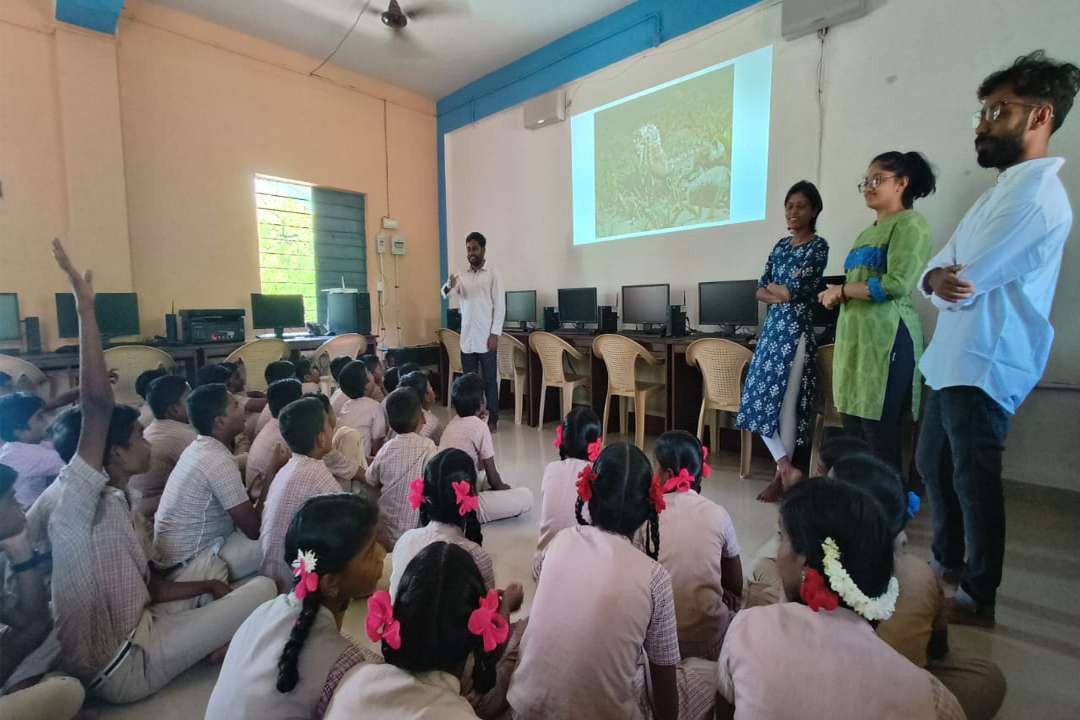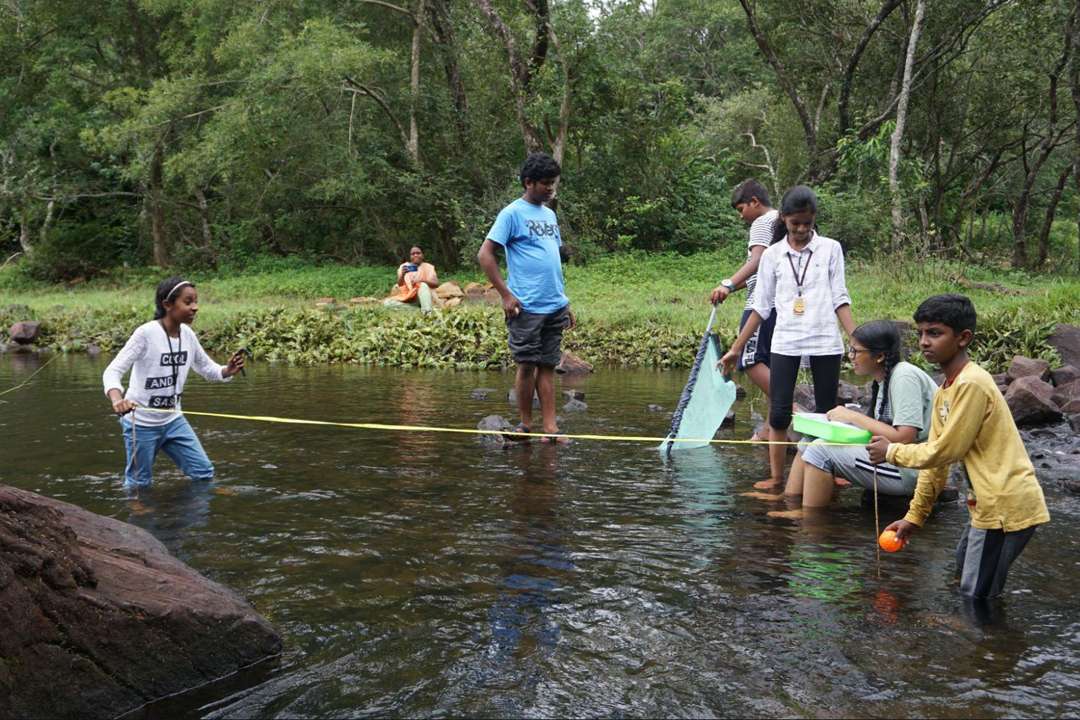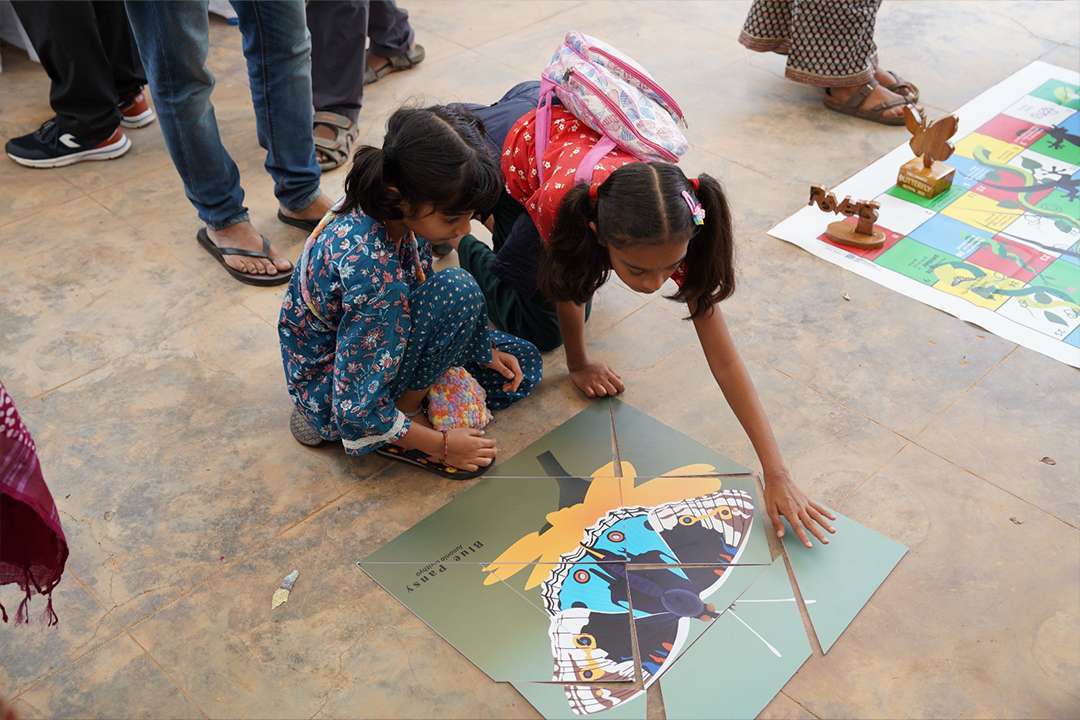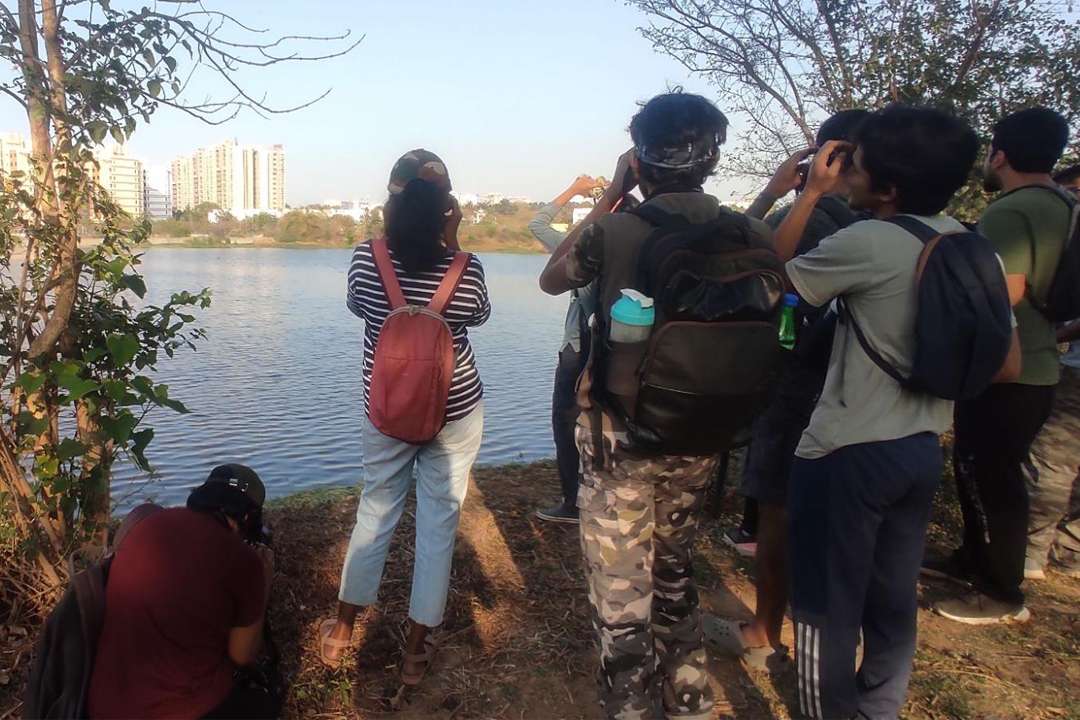ATREE’s Environment Education (EE) programme promotes environmental action among diverse stakeholders to conserve India’s natural resources, broadly classified under Land, Water and Forests.
ATREE follows a ‘Hands-On Place-based Education’ (HOPE) approach focusing on experiential learning and environmental stewardship. The HOPE model, emphasising understanding and action, aligns with the mandate of Education for Sustainable Development (ESD) outlined by UNESCO, the National Curriculum Framework (NCF, 2005), the Right to Education (RTE, 2009) and the New Education Policy (NEP, 2020) India.

ATREE offers thematic training for educators who want to involve their school community in protecting and conserving their local natural resources. The trainings and workshops are customised to the needs of the educators and related stakeholders, providing them with a perspective as well as pedagogical inputs to promote activity-based environmental education.
We work with both government and private schools near the Community Conservation Centres (CCCs). Our programme, Ainthinai Arivom, teaches students about the different ecosystems found in the Agasthyamalai area. Another programme, Jalapaadom, assists students in learning about the fish species and the lake ecosystem in Vembanad.


ATREE produces and curates contextual, relevant, age-appropriate educational resources for teachers and students. These enable children to connect with nature, and teachers can easily integrate them into the curricula. The resources include pictorial field guides, visual posters, flashcards, comic strips, newsletters and interactive games developed based on ATREE research.
ATREE promotes regular citizen science initiatives in collaboration with a community of interested citizens and researchers. It hosts nature walks and trails and organises outreach events to promote community conservation. Focus areas include lake restoration, waste management, water quality testing, school kitchen gardens and more.

